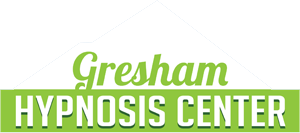It is completely rational to be apprehensive about something new to us. For many people hypnosis is new. We also know that you are curious about how it works and how effective it is. This is why we want to dispell some myths about hypnosis. The best way to talk about the positive impact hypnosis provides is to dispel the top myths. Here are the top three myths about hypnosis and hypnotherapy.
I WILL LOSE CONTROL UNDER HYPNOSIS
Nope. You are completely aware of your surroundings. You can hear everything around you and even open your eyes if you need to. You will remember your session; we also can provide a video of the session upon request. You do, however, go into a trance-like state. Think of it like being in a meditative state where you are extremely relaxed, present, focused and aware. Click to learn how hypnosis works.
HYPNOSIS DOESN’T WORK ON EVERYONE
There is a very, very small group of people that do not respond to hypnosis. Most of us experience trance-like states at least twice a day. Before and after you sleep. That moment when you are awake but still in bed is usually a trance-like state. You also go into trance during your daily commute or when you read a good book.
Success using hypnosis is dependent on many variables including the attitude, motivation, cooperation and the attendance of scheduled sessions by the client. Even though human behavior cannot be ethically guaranteed, Gresham Hypnosis Center does provide a written hypnosis service guarantee.
HYPNOSIS IS SUPERNATURAL “BLACK MAGIC”
We are not psychics or palm readers. We use science. Hypnotism has been around for centuries and has been shown to reduce stress, anxiety, and pain. Now with new medical brain imaging techniques, we can understand why. Stanford University did a study with over 500 participants and mapped each person’s brain during hypnosis and found two things:
- A Decrease in activity in the salience network. This is the network that distracts you when you see something in your peripheral vision or hear a sound that is unfamiliar. This part of your brain is very hard to quiet down because usually, it is ALWAYS on. A hypnotic state reduces those noisy distractions.
- An Increase in connectivity. Your brain is composed of multiple parts. Not all parts talk to each other. When in a hypnotic state your brain is increasing connections and the communication between those connections. Your brain becomes a better brain after hypnosis.
ARE YOU READY FOR CHANGE?
Hypnosis is known to help people quit smoking, lose weight and reduce stress. Hypnosis can help with almost any positive change you are seeking to develop. This includes managing pain and quitting bad habits. If you want change, try hypnosis.










